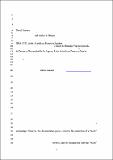Por favor, use este identificador para citar o enlazar a este item:
http://hdl.handle.net/10261/214992COMPARTIR / EXPORTAR:
 SHARE SHARE
 CORE
BASE CORE
BASE
|
|
| Visualizar otros formatos: MARC | Dublin Core | RDF | ORE | MODS | METS | DIDL | DATACITE | |

| Título: | Rejected brine recycling in hydroponic and thermo-solar evaporation systems for leisure and tourist facilities. Changing waste into raw material |
Autor: | Jiménez Arias, David CSIC ORCID; Morales-Sierra, Sarai; García Machado, Francisco Javier; García-García, Ana L. CSIC ORCID; Luis Jorge, Juan Cristo; Valdés, Francisco; Sandalio, Luisa M. CSIC ORCID ; Hernández-Suárez, Manuel; Borges, Andrés A. CSIC ORCID | Palabras clave: | Rejected brine Desalination Circular economy Hydroponic |
Fecha de publicación: | 19-jun-2020 | Editor: | Elsevier | Citación: | Desalination 496, 114443: 1-24 (2020) | Resumen: | For >50 years the Canary Islands have been using seawater desalinization facilities in order to satisfy the freshwater demand of their main economic activity –tourism, which continues to contribute to the economic and social progress of the archipelago. However, this desalinization process involves the production of a “waste” product known as rejected brine, which is discharged from coastal regions and islands, whether it originates from public or private facilities. Rejected brines are potentially a serious threat to marine ecosystems. However, here we demonstrate that this “waste” can be processed and reused as a nutrient mineral solution for a hydroponic production system and also a source of freshwater. The efficiency of this management process in terms of fresh-water production and water recycling economy is also discussed. The aim of this paper is to change the attitude towards rejected brines, which should be treated as potential raw material to permit high savings in the running costs of leisure and tourist facilities around the archipelago. In addition, this will also have a positive effect on the environment, making desalinization more sustainable and environmentally friendly, which is nowadays an added value in customer and user satisfaction. | Versión del editor: | https://doi.org/10.1016/j.desal.2020.114443 | URI: | http://hdl.handle.net/10261/214992 | DOI: | 10.1016/j.desal.2020.114443 | ISSN: | 0011-9164 |
| Aparece en las colecciones: | (IPNA) Artículos (EEZ) Artículos |
Ficheros en este ítem:
| Fichero | Descripción | Tamaño | Formato | |
|---|---|---|---|---|
| Desalination 2020, 114443.pdf | Artículo principal | 648,86 kB | Adobe PDF |  Visualizar/Abrir |
CORE Recommender
SCOPUSTM
Citations
8
checked on 07-may-2024
WEB OF SCIENCETM
Citations
7
checked on 21-feb-2024
Page view(s)
240
checked on 16-may-2024
Download(s)
130
checked on 16-may-2024
Google ScholarTM
Check
Altmetric
Altmetric
Este item está licenciado bajo una Licencia Creative Commons

